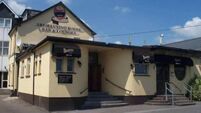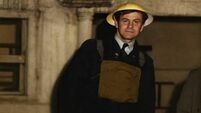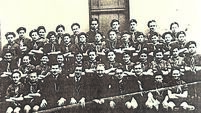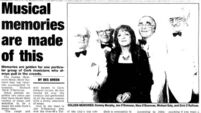Houses in Cork priced at less than £700
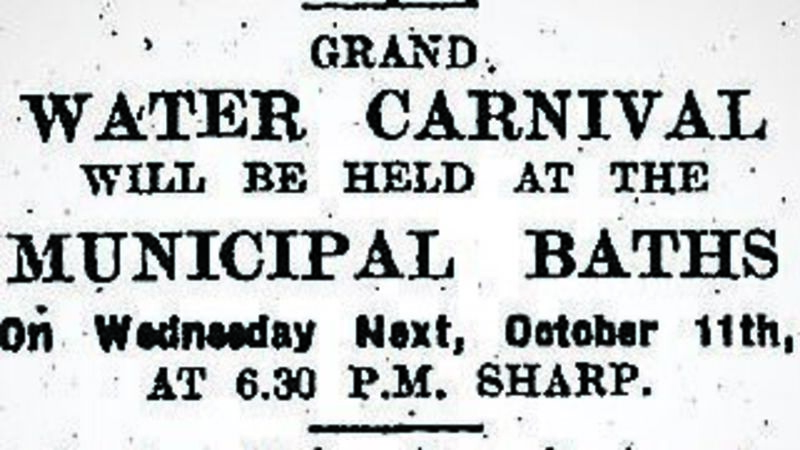
CORK Corporation discussed prices for house building on the Wycherley site, the Echo reported 100 years ago today, on Saturday, October 7, 1922.
In light of the government conference that the Housing Committee attended in Dublin, a set of cost reductions had to be agreed with the contractors.
Construction of the larger houses had been priced at £750 each but was now £633. Smaller houses were £725 and were now £608. This made for a reduction of £117 per unit on the proposed total of 68 houses.
The principal changes were: 1. Exterior sloping ground not to be raised, levelled and walled. 2. Red cemented floors to be provided rather than tiles. 3. Gravel paths in front of houses rather than concrete. 4. Linen presses to be omitted. 5. Bath and hot water service to be omitted.
Much discussion on the issue ensued. John Horgan said no- one wanted to see reductions and omissions, particularly the hot water and bath. But the Local Government Board went through the specifications and marked off what it believed could be reasonably eliminated.
Sir John Scott said: “The Corporation has its hand it the lion’s mouth. It can accept the scheme as it stands, or the government will clear out of it altogether. This is no time for shilly-shallying. The houses will only be built if the Corporation do the only thing left to do, and that is to accept the scheme as it stands.
“I am not here to swallow any pill brought down from Dublin under duress. The houses should have concrete paths.”
Alderman Lucey said, “the children can have a game of gobs” (laughter). John Horgan said: “We would put marble entrances to them if we had the money.”
The new terms were accepted. Work to begin ten days after signing. Local labour to be used.

The mud season is once again upon us, and the city’s citizens can expect to garner a heavy crop of it. The Corporation has, naturally, already discussed the issue - a custom rendered historic by repetition and inaction.
Letters of complaint will shortly appear in the press but then folk will settle down to endure the worst for another year.
What we need for real change is the appointment of a Mud Controller. Such an appointment would confer the greatest boon on the citizenry. His task would indeed be stupendous, but the thanks received for faithful performance would be boundless!
Chauffeurs would gladly assign him part of their wages for labour saved, and shopkeepers would guarantee a portion of his salary in return for splashless windows.
Should the Corporation decide to appoint such an official, I think the examination for the position should be confined to those whose remarkable performances at The Lough recently gives them qualification in Mud-ology.
Another case of daylight robbery occurred at 2pm today when the tailoring department of Grant & Co. was entered by armed men. They proceeded to take large quantities of wearables which were transferred to a horse and van, which then proceeded in a southerly direction.
In a similar robbery on Grafton Street in Dublin yesterday, six armed men entered Roberts Drapery and took goods to the value of £200. These included 40 waterproof and trench coats, underclothing, socks, shirts, leather jerkins and leggings. They rolled the goods up in lorry covers and took them away.
Raids for clothing these days are not infrequent. Also yesterday, a postman was held up by armed men while on his rounds near Carrignavar. Some letters were taken from him, opened and then returned.
There was a good deal of firing in the city during the night. The heaviest outbreaks were in the western side, but it was general throughout and lasted into the early morning. There was considerable sniping following the attack on the gaol.
The attack on the County Gaol took place around 8pm and featured vigorous sniping from both sides. There was a great din along Gaol Walk and a good deal of alarm generally.
People went quickly indoors and many on their way to evening devotions at St Finbarr’s West (The Lough) returned home. It’s understood there were no casualties. Around the same time, a small party of National Troops were fired upon near the entrance to Fitzgerald’s Park.
In fighting that took place to the north and east of Bantry, National Troops were forced to retreat owing to the superiority of position and numbers of the Irregulars. They did, however, effect some arrests and discovered parts of a machine gun and other equipment in a house.
During the firing in the Gortroe district, a bullet entered the kitchen window of Mrs Barry and struck her daughter (20) in the chest. It is since reported she has succumbed to her injuries.
